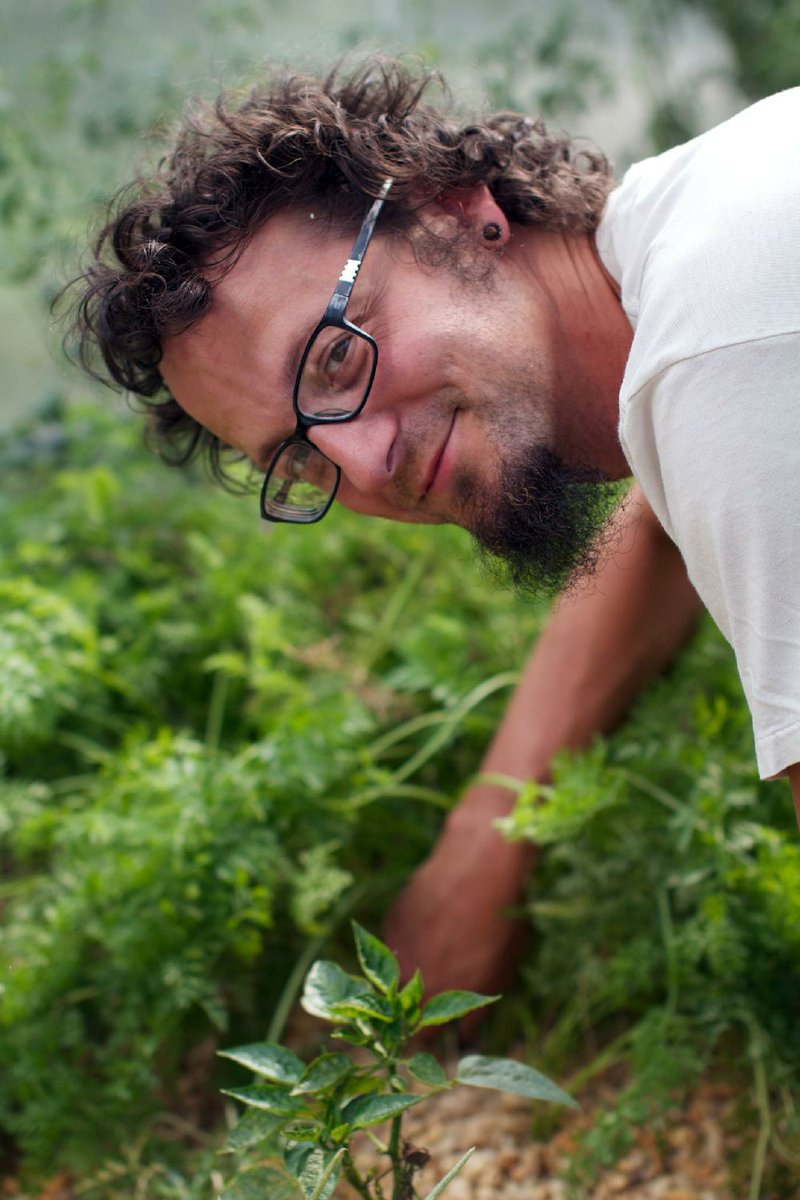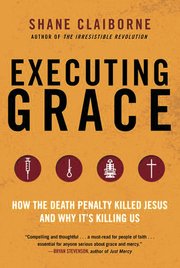Christian activist and best-selling author Shane Claiborne takes on the death penalty in his latest book, challenging people of faith, especially fellow Christians, to put an end to executions and instead embrace the idea of restorative justice.
Claiborne will talk about his book, Executing Grace: How the Death Penalty Killed Jesus and Why It's Killing Us, at 6:30 p.m. Oct. 28 at Pulaski Heights United Methodist Church, 4823 Woodlawn Drive, in Little Rock as part of a weekend of speaking events.
Claiborne spent much of his life in favor of the death penalty.
"But the more I began to learn about it, the more troubled I became," he said.
Claiborne often gives his books to people in prison, and he began corresponding with some prisoners and got to know a few on death row. One of the first letters he received from a prisoner had two words in bold writing -- help me.
"There was such an urgency about it," he said. "Every single story is so unique. Some are fighting to prove their innocence and for others guilt isn't a question. But it raises the question: Is anyone beyond redemption?"
As he began researching statistics on the death penalty and working on his book, Claiborne said he was disturbed to discover that the majority of executions in the past 40 years have happened in the Bible Belt.
"One of the things that is particularly interesting about the death penalty is that it has survived in America, not in spite of Christians, but because of them," he said. "It's very troubling to me ... and I really wanted to explore that."
In Executing Grace, Claiborne explores theological questions regarding the death penalty and what Jesus had to say about revenge and retaliation.
"He teaches us this idea of restorative justice -- healing the harm done rather than perpetuating it," Claiborne said. "We don't really believe in 'an eye for an eye.' We don't actually cut someone's arm off [for stealing]. We think that's cruel."
Claiborne also explores the role of race, including the country's history of lynching and the racial makeup of those who have received the death penalty, or have been executed. He found it interesting that places in the country where the most lynchings occurred correspond with the states where the death penalty is invoked most often.
"We have this idea that we are killing the worst of the worst and that's often not true," he said. "We've often killed the poorest of the poor."
Claiborne said he has also worked with the families of murder victims and stresses that their voices need to be heard.
"To be anti-death penalty does not mean to be anti-victim," he said. "These families are heroes of mine, and many of them are deeply compelled by their faith. They believe even someone who has taken a life has possibility and we don't want to short circuit the work of God within them. It's a powerful witness."
Claiborne said restorative justice offers a new way of thinking about justice.
"It's different [from] some of the ways we've been conditioned to think of justice -- what we mean is they need to be punished or killed," he said.
Restorative justice means asking what was the harm that was done and how can it be healed.
"How can we do something to repair the wounds that were inflicted? What might the person who committed these acts be able to contribute to that?" he asked.
Claiborne said places like Rwanda and South Africa have utilized restorative justice and reconciliation to deal with genocide and apartheid.
"I think that's important," he said. "A lot of the world has found out how to do restorative justice better than we have."
Fighting against the death penalty is just one facet of Claiborne's activism. He has a long history of advocating for the poor and the marginalized. He worked alongside Mother Teresa (now Saint Teresa) in Calcutta, spent weeks as part of the Iraq Peace Team in Baghdad and founded The Simple Way, a faith community for the homeless in Philadelphia where he lives and serves among them.
He's also a prolific author. Some of his books include Jesus for President (co-authored with Chris Haw), Red Letter Revolution, The Irresistible Revolution: Living as an Ordinary Radical and Jesus, Bombs and Ice Cream.
During his weekend in Little Rock, Claiborne also will talk about The Simple Way and his work with the poor. He will speak from 11 a.m. to 1 p.m. Oct. 29 at St. Luke United Methodist Church, 6401 W. 32nd St., where his topic will be "Another Way of Doing Life."
"I'm very interested in what Christians and others think about how we live in the world right now," he said. "Of not just thinking of our faith as a ticket into heaven and ignoring what we see now. Is there life before death? For me, my faith makes me think about that."
Claiborne will wrap up his visit by preaching at 9 and 11 a.m. Oct. 30 at Pulaski Heights UMC.
The Rev. Britt Skarda, senior pastor of the Pulaski Heights church, said Claiborne spoke at the church last year and the congregation wanted to have him return to speak.
"This time there's an added dimension for us," he said. "We are partnering with St. Luke United Methodist Church trying to develop a child-care facility at that church to provide quality child care to low-income or no-income folks -- people who can't go out and work because of child care issues. We thought, let's get out in the community and make a difference."
Skarda said the work that Claiborne does in helping the poor meshes with the idea behind the project.
"He believes Christianity is to be lived out in community," Skarda said. "And in a culture where the 'none' population is growing and fewer are connecting to the church, he reminds us it's really important to be a part of a community."
The public is welcome to attend any of the events. The gatherings are free but registration is needed for the Oct. 28-29 events. Registration is available online at phumc.com/shane or by calling (501) 664-3600. Deadline is Oct. 24.
Religion on 10/08/2016

